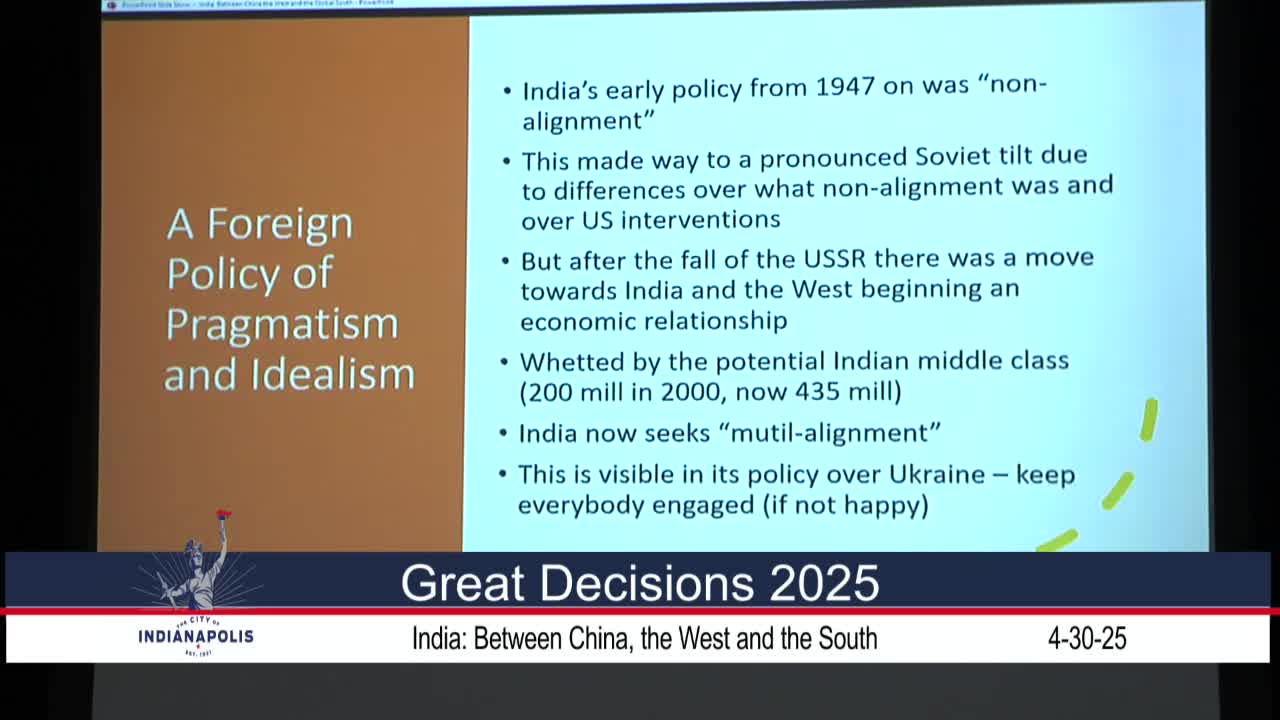Professor warns India27s democratic institutions and minorities face increased pressure under BJP
Get AI-powered insights, summaries, and transcripts
Subscribe
Summary
At a University of Indianapolis lecture, Dr. Milind Takar said India has seen democratic erosion in recent years, with the ruling Bharatiya Janata Party advancing Hindu‑majoritarian rhetoric, pressure on the press and attacks on academic freedom and minorities.
Dr. Milind Takar told attendees that India’s democratic institutions have weakened and that social and legal pressures target Muslims, lower‑caste communities and independent institutions.
Takar said the Indian National Congress, once dominant, has declined and the Bharatiya Janata Party (BJP) has advanced a Hindu‑nationalist agenda. He described the current environment as “an intolerant state” and noted that Freedom House downgraded India two years earlier to a “partly free” rating.
Why it matters: Erosion of press freedom, judicial independence and university autonomy can affect rule‑of‑law, civil liberties and India’s international standing, Takar said.
Takar described examples discussed in the lecture: pressure on journalists and academics, legal and social actions that can disproportionately target Muslims, and ongoing discrimination against lower‑caste groups. He referenced police brutality and judicial pressures, and recommended viewing the film Article 15 (a Bollywood film he cited) as an illustrative depiction of caste‑based violence and systemic failures.
He said that some political messaging has used a narrative of Hindu communities being ‘‘under threat,’’ a claim he called false given Hindus’ majority status. Takar added that these tactics are effective in election politics because they mobilize supporters with emotive slogans rather than programmatic policy proposals.
Takar noted that social media amplifies both exposure of abuses and misinformation; he used the phrase “WhatsApp University” to describe informal rumor circulation that can inflame tensions or spread inaccurate claims.
He said democratic backsliding is not irreversible but warned it would require institutional renewal and political change to restore earlier levels of pluralism.
